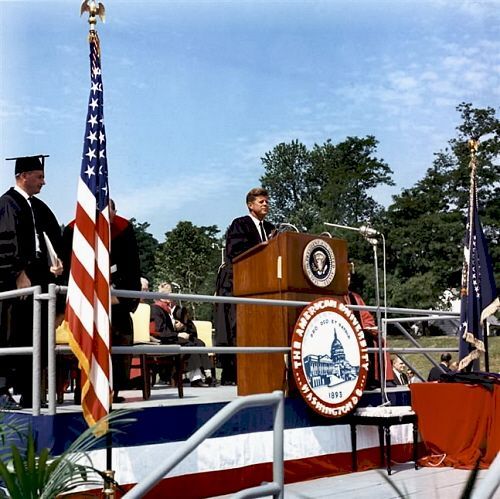AMERICA-EURASIA CENTER's INTERNATIONAL SECURITY AND PEACE PROGRAM
The America-Eurasia Center’s International Security Program
The America-Eurasia Center's International Security Program brings together experts from around the globe to work on the most important issues of our day - war, international security, and how to bring about real progress in nonproliferation, disarmament, and threat reduction.
The America-Eurasia Center has produced a number of international security publications over years, which have covered developments in the strategic and conventional balance of power in the post-Cold War world. In the post-9/11 world, security issues are more complex in terms of defeating terrorism, and trying to seek ways to increase the safety of American citizens. Our experts offer important solutions to the problems confronting US security both here and abroad, by offering crucial recommendations for building true security not only for US allies but with other countries throughout Eurasia (Europe and Asia).
Rising pressures concerning energy dependency and development have created geopolitical divisions and dependencies. US dependence on energy from the Persian Gulf, as well as European dependence on Russian gas supplies, continues to influence geostrategic calculations in foreign policy . Political decisions on mega-infrastructure projects, such as the Trans-Adriatic Pipeline (TAP) which will bring 10-20 billion cubic meters of gas a year from the Caspian area through Greece and Albania to Italy, will have major impacts and potentially unforeseen consequences, given competing national energy and resource agendas. Major geopolitical interests are at play in these cases, and Eurasia Center programs will seek to unravel the operative factors, and invite debate and discussion. Our intent is to provide an open forum for opinions, and a platform for effective international consensus and collaboration on energy security.
Although there has been a significant reduction in the number of nuclear weapons between the United States and Russia/FSU states, the America-Eurasia Center's position is that not enough has been accomplished in this area and there will be further delays, coupled with new plans for building even more effective strategic weapons.
These developments will rob the world of an opportunity for true security. The current destructive potential of U.S.-Russian nuclear arsenals can annihilate large portions of the globe, not to mention that of other nuclear nations. By offering the world a serious strategic plan to reduce nuclear weapons, both the US and Russia will have evidence to show the new nations of the world seeking to acquire nuclear weapons and material that both the US and Russia are serious about fulfilling their obligations under the Nuclear Nonproliferation Treaty. Thus, the United Nations would have the proper justification to block new nations from trying to acquire radioactive material and develop nuclear weapons in order to joining the world’s “Nuclear Club”.
The Center's international security specialists have raised important proliferation concerns by exploring today's dangers associated with the growing number of nuclear weapons states. The proliferation of nuclear weapons states, including India and Pakistan, occurred without a strong condemnation from the U.S. and the world community. Other nations seeking nuclear weapons now have bad examples to emulate. The delays of solving the nuclear dilemma with North Korea and Iran are also placing further strains on global security between America and Eurasia. These issues must be addressed and resolved. Issues of transnational terrorism and weapons of mass destruction ending up in terrorist hands must be confronted with a decisive counterterrorist strategy. Developing effective security strategies are important for the collective security of the world.
The America-Eurasia Center will begin publishing a new International Security Report on an annual basis. Its overall goal would be to develop new strategies for resolving the issues of our day - from loose nukes, dirty bombs, and terrorism towards addressing real areas of concern within Eurasia. The America-Eurasia Center’s International Security Program unites different elements within the international community to support the common goals of seeking global peace and security. The Center calls for a new alliance of security experts to unite, take issue, and offer important alternatives to correct the present course of events. Issues to be examined will also cover important conflict “flashpoints” between nations and transnational groups, including civil wars. For those interested in partnering with the Center’s International Security Program, please do not hesitate to contact us. The America-Eurasia Center’s International Security Program seeks foundational, donor, corporate, and governmental support to achieve these objectives, as well as the grassroots support of citizens who wish to build a better world.

A NEW STRATEGY FOR PEACE IS NEEDED
The America-Eurasia Center's International Security Program
Presidents Reagan and Gorbachev Prove that Arms Control Agreements Are Possible
and Peoples of Differing Systems of Government Need not View each other as Enemies
AMERICA-EURASIA CENTER PUBLICATIONS IN INTERNATIONAL SECURITY










